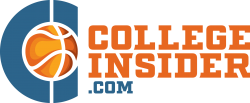History of Winning
History of Winning
As career coaches we spend many hours learning as much as possible about our game, our profession, and what it takes to achieve success in the wild world of college athletics. As assistant coaches, we must work tirelessly to advance our programs on a daily basis. Of course, we are preparing to become head coaches, but being the best at the job you have should be the top priority. Loyalty to the head coach and the program are a staple of a top notch assistant. Through the experiences we have in different programs, under different head coaches, we will shape our opinions, contacts and coaching styles.
During my time at Holy Cross (00-04) and Albany (05-07), I noted the common threads that made these programs successful. As Coach Tom Moore strives to build Quinnipiac into a successful program, he has asked our staff to aid the process by using our past winning experiences as a guide. Here are 12 components to building a successful program that I have learned from Ralph Willard (Holy Cross), Will Brown (Albany), and many talented assistants during my history of winning:
1) Relentless Recruiting- Blanketing the country for players who fit the program and school is the #1 key….PERIOD. We looked for kids who achieved on the court, in the classroom and in public.
2) Relentless Recruiting- See #1!
3) Academics-Weekly meetings between players and staff reinforce how serious we are about the academic progress of our student-athletes. They are in the program to get a degree and we are responsible for helping see them through that process.
4) Build Contacts- You never know where players will come from. We work hard daily to build solid ties with key people in key areas.
5) Teach the Game- We are educators who teach basketball and life. The more time spent cultivating skills, the better the results will be for the players. If players and coaches share a mutual trust, the team will be on a path to overachieve.
6) Scouting/Game Preparation- The most overlooked component to a program’s success. There have been numerous games I felt we won because we were better prepared than the opponent. If you know your opponents tendencies and sets as well as your own it frustrates them.
7) Form an Identity- Once the Head Coach has decided what the team will “hang their hat on,” it must be consistently reinforced.
8) Program Pride- When the staff and players believe in the front of the jersey they will be relentless in the pursuit to advance the program. Defining what makes the program special will create a bond among the group that is difficult to break. When the players feel they have been directly involved in developing this pride, it is carried on from year to year as people come in and out of the program.
9) Communication-A staff that is plugged in to each other is extremely productive. We are sure to know each other’s recruiting schedules and are familiar with each other’s recruits. We meet on a weekly basis to discuss any pending issues and map out the best way to get things done.
10) Family Atmosphere-We create a culture where the players can approach any staff member with a question or issue that they are confident will be resolved by a coach they trust has their best interest at heart. You can get after them on the court but it is never personal. We are here to make them the best people and players we can during their time in the program and beyond.
11) Learn and Evolve- Whenever possible get to other programs and coaches to learn about what makes them successful. We can all put our egos aside and pick something up from the many great coaches in any sport.
12) Do the Extra- Overachieve….. do more than the opponent whether it’s players - 50 extra 3’s, 100 extra Free Throws, 5 more sprints, …. Or staff - 10 more phone calls, 2 more films, 8 more notes to recruits, 6 more emails, WHATEVER IT TAKES!
We all know that there are many different methods to developing a successful basketball program. After being a part of 5 NCAA Tournaments, I am confident that these ideas can be helpful in any program, regardless of style. I have been extremely fortunate to work under Ralph Willard, Will Brown, and now Tom Moore. They are 3 successful coaches who have allowed me to contribute to their programs while growing as a coach and preparing to guide my own program. They have been successful with different experiences and styles but they share a common thread, a history of winning.


